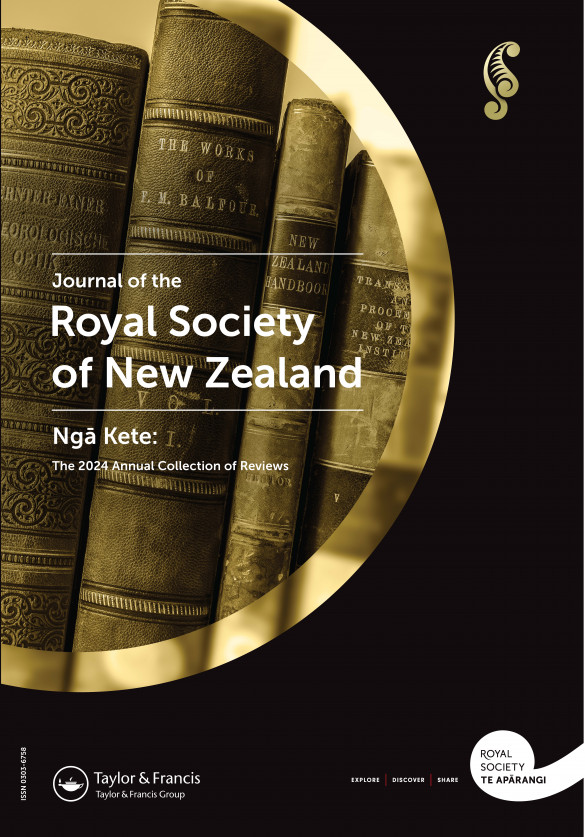News
Published 12 November 2024JRSNZ Call for Papers: Special Issue on Māori Data Sovereignty: Research, Practice, and Policy

E te tī! E te tā! He karanga tēnei ki a koutou e ngā pūkenga o te mana raraunga.
The Journal of the Royal Society of New Zealand (JRSNZ) is calling for Expressions of Interest (EOI) for a Special Issue planned for release in early-2026, entitled “Māori Data Sovereignty: Research, Practice, and Policy”.
‘Nothing about us, without us’ has been the call to Indigenous data sovereignty worldwide. But how is Māori data sovereignty operationalised in research, science, innovation, and technology in Aotearoa New Zealand?
Crucial developments in Indigenous and Māori data sovereignty occurred a decade ago. Te Mana Raraunga (the Māori data sovereignty network), first formed in 2015, was subsequently instrumental in the formation of the broader Global Indigenous Data Alliance and movement. Many of the founders of Te Mana Raraunga and the Global Indigenous Data Alliance came together to produce the trailblazing Indigenous Data Sovereignty: Toward an Agenda, published in 2016. The volume, and its 2020 follow-up, Indigenous Data Sovereignty and Policy, presents a rich and comprehensive view of both the successes and challenges of asserting Indigenous data sovereignty within colonial contexts.
Te Mana Raraunga advocates for the realisation of Māori rights and interests in data; for data to be used in safe and ethical ways to enhance the wellbeing of Māori people, language and culture; and for Māori governance over Māori data. Māori data sovereignty is a concept that is increasingly recognised across sectors, including in: academia, research, science, innovation, technology, business, medicine, and policy. Part of this impact has been driven by Te Mana Raraunga and their Māori data sovereignty principles, which have served as a guide for many diverse projects.
To celebrate a decade of Te Mana Raraunga, the development of the Māori data sovereignty principles, and associated action in research and policy, this special issue seeks to document progress in Māori data sovereignty, positive contributions to both science and Te Ao Māori, and the coming challenges of the next decade. The special issue “Māori Data Sovereignty: Research, Practice, and Policy” takes stock of history, including the last decade, and developments in Māori data sovereignty in science, policy, hapori Māori, universities, enterprise, and all data contexts.
We seek a mix of quality manuscripts that utilise different methods, across any academic field or background. Suggested areas of research include, but are not limited to:
- Technical innovations that implement Māori data sovereignty
- Studies of community design or co-design around Māori data sovereignty
- Iwi, hapū, and whānau enactment of Māori data sovereignty
- Exemplars of practice or policy impacts
- Case studies in particular contexts, including health data
- Insights into how hapori Māori view data use, privacy, research, security, and related topics
- Relationships to wider Indigenous data sovereignty, including Pacific data sovereignty
- Challenges, opportunities, and areas for future research
- Review articles that pull together expertise, and cover developments and future challenges in Māori data sovereignty in a subfield or topic
Guest Editors
Associate Professor Lara Greaves (Ngāpuhi, Pākehā, Tararā) (VUW), Dr Logan Hamley (Ngāti Rangi, Whanganui) (Whakauae), and Dr Nicole Edwards (Kāi Tahu, Ngāti Kahungunu) (Auckland).
Submission information
Please send a preliminary title, indicative author list, affiliations and a short descriptive paragraph outlining the scope of your proposed manuscript as soon as convenient to Associate Professor Lara Greaves via lara.greaves@vuw.ac.nz by 1 March 2025.
Authors will be notified of the result and formally invited for full submission by 1 April 2025. The anticipated manuscript submission deadline is 1 September 2025.
Following acceptance, individual articles will be published online first with a DOI before they appear in the special issue.
Acceptance for publication will depend on the outcome of the normal peer review process and authors meeting critical time schedules. See Instructions for Authors on the journal homepage before making a formal submission to the Journal of the Royal Society of New Zealand if your EOI is selected. Please pay particular attention to the requirements for various Article Types when preparing your manuscript, which includes restriction on type of content the Journal publishes (“…The Journal will not accept descriptive quantitative or qualitative papers with long data quotes and little analysis, nor papers with a purely taxonomic focus”).
If you’re affiliated with any of the participating institutions for the Council of Australian University Librarians and Taylor & Francis transformative agreement, you may publish your articles Open Access at no cost to yourself in the Journal of the Royal Society of New Zealand. Find out if you’re eligible.
Please direct any queries to the Managing Guest Editor, Associate Professor Lara Greaves at lara.greaves@vuw.ac.nz.

